 March 20,
2020. One of
our graduates,
Syeda Shahper,
has published
7 papers in
Academia.edu, a platform for
academics to share research
papers. You can find her 7
research papers below:
1. Seminar Personal Development
March 20,
2020. One of
our graduates,
Syeda Shahper,
has published
7 papers in
Academia.edu, a platform for
academics to share research
papers. You can find her 7
research papers below:
1. Seminar Personal Development
 April 27, 2020.
April 27, 2020. February
25, 2020.
One of our
graduates,
Merard
Mpabwanamaguru,
has recently
published his Doctoral thesis
titled “Citizen Engagement
in City Planning” through the
publishing site More Books.
Merard has completed
his Doctoral program in
Urban Planning and Design
at Atlantic International
University. His work can be found through the following
link:
https://www.morebooks.
shop/store/gb/book/citizenengagement-
in-city-planning/
isbn/978-613-8-93011-2
February
25, 2020.
One of our
graduates,
Merard
Mpabwanamaguru,
has recently
published his Doctoral thesis
titled “Citizen Engagement
in City Planning” through the
publishing site More Books.
Merard has completed
his Doctoral program in
Urban Planning and Design
at Atlantic International
University. His work can be found through the following
link:
https://www.morebooks.
shop/store/gb/book/citizenengagement-
in-city-planning/
isbn/978-613-8-93011-2
 April-May, 2020.
These graduate students
completed the majority of
the requirements to obtain
honors, which included a
4.0 GPA, published works,
recommendation from their
respective advisors, patent a
product, etc.
Congratulations!
April-May, 2020.
These graduate students
completed the majority of
the requirements to obtain
honors, which included a
4.0 GPA, published works,
recommendation from their
respective advisors, patent a
product, etc.
Congratulations!

Hello, I extend my greeting
to all members of our
board of trustees, professors,
counselors, tutors, staff of all
levels and, in short, each and
every one of you for the whole
family of Atlantic International
University wherever you are
across the globe; just trust that
I love you very deeply from the
bottom of my heart.
Today we are living in a
time that we all thought it
could never be real, but here
we are with an obligation
to deal with the unthinkable
pandemic caused by the
coronavirus.
AIU wants to remind to
everyone that you are not
alone, most importantly that
we need to keep our spirit
high and persevere though
this tough adversity. By all
means dear members, friends
and supporters of our institution,
please never ever give up
regardless.
This advice leans on three key
dimensions:
Under one hand we are in
this together, the same way we
continue to work as a team interacting
with each other at all
levels in a truly collaborative
fashion twice a year in our
commencement ceremonies
in this time of darkness,
uncertainty and fear we stand
together as well. No matter
what, no one in the AIU family
will be left at the mercy of
that external force. If you are
a student, more than ever the
staff will continue to remain
valuable to you virtually under
24 hour basis through our
platform, and those who interact
with you will keep displaying
the same commitment,
the same compassion and the
same friendliness that have
always characterized Atlantic International University.
We invite you to trust that
we will leave absolutely nothing
behind to ensure that
you embrace that mindset
to strongly believe in your
spiritual power to overcome;
yes, you shall overcome dear
friends because as a family,
we remain united and resolute
with a deep-rooted commitment
to overcome, indeed we
will overcome.
In this specifically line of
thought, I would like to urge
each one of you to move
your thinking to two separate
levels.
First, we support to every
close family member and help
him or her to nutritious on
faith and look forward to better
days that is not question
about it, better days and times
have to return. Believe
me AIU friends
without that
support system
many
people
have
already begun
to lose
hope, don’t
you ever let
that happen
to you and do
not allow that to hit those around you either.
Secondly, bear in mind
that every instant we are one
single family and we stand
quite strong with and behind
you, physically through the
power of modern technology
and spiritually as well.
I encourage you to always
follow the authorities’ guidelines
for your safety and
well-being; we can now only
pray dear family members
of AIU, with the firm hope to
soon again find new joy and
success in our professional,
academic and in life endeavor.
Nevertheless once again we
are in this together we support
every single student and
staff member and we want
to remain supportive to one
another; this way we are assuring
ourselves that we will
not disappear, we may
fall but we will get
right back up
and continue
our mission
as recognized
early
pioneer of
distance
education to
the world. In
despite of this
though times,
Peace and Love!

| Kalyata Moises Njolomba Master of Business and Economics Business Administration Angola |
Leonardo Csizmas Doctor of Science Environmental Risk Management & Prev. Argentina |
Andrea Alvarez Alvarez Bachelor of Science Psychology Aruba |
Adilson Pablo Contreras Zapata Doctor of Science Psychology Bolivia |
Elizabeth Antonieta González Manríquez Bachelor of Psychology Social Psychology Chile |
Dangheliz Alexis Tobar Urzua Bachelor of Psychology Human and Organizational Behavior Chile |
| Yeimy Andrea Gutiérrez Vargas Doctor of Supp ly Chain Management Logistics and International Trade Colombia |
Raynet Rossi Fernández París Bachelor of Education Early Childhood Education Dominican Republic |
Beatriz Rodriguez Nouel Bachelor of Science Psychology Dominican Republic |
Enmanuel Antonio Hernández Sánchez Doctor of Science Sports Science Dominican Republic |
Manuel Enrique Muñoz Mainato Doctor of Philosophy Educational Anthropology Ecuador |
Washington Eisenhower Chamorro Ortiz Doctor of Philosophy Physics Ecuador |
| Tula Silvana Luna Briceño Doctor of Education Educational Sciences Ecuador |
Jose Monfilio Diaz Ogoño Bachelor of Science Political Science Ecuador |
Tony Alfaro Portillo Bachelor of Science Industrial Engineering El Salvador |
Alemayehu Hailu Gebre Doctor of Education Education Ethiopia |
Gabriel Osei Bachelor of Business Administration Business Management and Administration Ghana |
Ernest Yeboah Doctor of Legal Studies Criminology and Society Ghana |
| Maria Isabel Recinos Calderón Bachelor of Business Administration Business Administration Guatemala |
César Estuardo Rossil Bachelor of Science Information Systems Guatemala |
Kelvin Josue Alvarez Soto Bachelor of Science Agriculture and Industrial Process es Honduras |
Dara Al Yaqoobi Doctor of Architecture Architecture Heritage Preserv. and Mgmt. Iraq |
Myrthala Juárez-Treviño Bachelor of Arts Piano Performance Mexico |
Luis Felipe Vargas Ruiz Post Doctorate of Psychology Addictions Counseling Mexico |
| Mónica Rojo Diéguez Post Doctorate of Science Statistics Mexico |
Leticia Limon Sanchez Master of Public Health Public Health Mexico |
Adolfo Adriano Muholove Doctor of Philosophy Project Management Mozambique |
Hélio Amone Gove Doctor of Philosophy Electromechanical Engineering Mozambique |
Custódio Fabião Zandamela Doctor of Philosophy Human Resources Management Mozambique |
Lewis Malama Bachelor of Science Human Resources Management Namibia |
| Olawale David Akinyemi Doctor of Philosophy Transp ortation Management Nigeria |
Duruike Chamberlain Osondu Doctor of Philosophy Strategic Management Nigeria |
Ifesemen Michael Ogbekile Ogochukwu Doctor of Philosophy Human Resources Management Nigeria |
Olutayo Joseph Ogunyemi Master of Science Electrical Engineering Nigeria |
Olatunji Emmanuel Omoniyi Master of Science Public Health Nigeria |
Ngozi Patience Nwosu Post-Doctorate of Education Sociology of Education Nigeria |
| Ibrahim A. M. Shalash Doctor of Science Environmental Science Palestine |
Luis Alfonso Urriola Tejada Doctor of Philosophy Economics Panama |
Cesiah Alemán R. Doctor of Science Mathematics Panama |
Santos Ricardo Tarazona Maza Master of Science Civil Engineering Peru |
Merard Mpabwanamaguru Doctor of Philosophy Urban Planning and Design Rwanda |
Rokhaya Ndoye Mbaye Doctor of Philosophy Psychology Senegal |
| Alpha Tanue Jalloh Bachelor of Science Business Administration Sierra Leone |
Jason Fisher Master of Business Administration Business Administration South Africa |
Vera Champagne Doctor of Business Administration Business Administration Spain |
Dumile Fikile Sibandze Master of Science Quality Management Systems Swaziland |
Mohamed Ehab Mohamed Aly Sheha Bachelor of Business and Economics Business Management Turkey |
Omar Anele Henry Bachelor of Science Refrigeration Mechanic Turks and Caicos Islands |
| Thelma Eugenia Guevara Delgado Bachelor of International Relations International Relations USA |
Regina Elizabeth Sandoval Villanueva Master of Business Administration Business Administration USA |
Reina Sierra Bachelor of Science Psychology USA |
Berry Oduma Odhiambo Master of Business Administration Economics USA |
Daniel Eugene Mitchell Master of Arts Egyptology USA |
Davies Mwandu Master of Conflict Resolution Human Rights Zambia |
| John Mwale Doctor of Philosophy Public Health Zambia |
Christopher Chileshe Master of Science Occupational Health Safety and Environment Zambia |

 Cecilia Mendez Miranda
Cecilia Mendez Miranda
 Haggai Cooper
Haggai Cooper
 Omar Henry
Omar Henry

Who are you and where are
you from? Could you give us
a brief introduction?
I am Walter Juan Quintanilla
Auza born in the Antonio
Quijarro province of Potosí,
Bolivia, in the Uyuni salt flat. I
am the sixth and only male of
8 brothers. We are a large family
with a lot of love and very
few resources, which is why
we weren’t able to study as
we would have liked, working
very early and having to study
nonstop.
Tell us about this educational
experience, tell us how the Andragogy-based learning
process has impacted your
professional and personal life.
I finished the secondary
cycle under an agreement for
workers, the bachelor’s degree
of normal young people is a
bachelor’s degree in humanities,
mine is a technical bachelor’s
program that was never
given in Bolivia, with that title
in the public University UATF.
I achieved the title of Technician
University Superior
in Electricity with which I
ended up being a professor in
that faculty for more than 20
years, in 2005, protected by an
agreement between the AIU
and the UATF of Potosí Bolivia
I enrolled in the Electrical
Engineering course concluding
two years later.
From that moment, the
academic world changed for
me. In 2007 I did a master’s
degree in environment at
UATF; in 2011 a second bachelor's
degree in technical and
technological education, at
UAJMS and, finally in 2011, I
did a Doctorate in educational
science at UATF.
What made you decide to
enroll in AIU? What factors
helped you make this
decision?
I learned that it really is
never too late to study, and
AIU brings you this chance.
The academic degree from
AIU opens the doors and helps
you, and leads you towards
personal and professional
development, I am the family
member to achieve a degree.
Was it easy for you to do the
program by yourself?
You need to manage yourself, manage the times
and take it seriously. I learned
that it can be an expense as
well as an investment, the
teacher does not always have
to be in the classroom.
How is your AIU degree
helping you in your career?
Wonderfully! I have a US
academic degree now. Today, I
am General Manager of a company
called Karachipampa,
which belongs to the Mining
Corporation of Bolivia. It has
been a great challenge for me.
It is a smelter that 30 years ago
was semi-stopped giving 10%
of its installed power. Next
August we will reach the 100%
of its installed power.
Do you think you have
been able to help your
community? How?
There are many people
in my condition who need
an opportunity to achieve
their dreams. In that sense, I managed to be part of the Domingo
Savio University that
has flexible hours and a semiface-
to-face system, of which
I was Rector for 8 years. Also,
I launched a socially responsible
mining company Called
Santa Rita. We were able to
involve 70 families working
in the project. It is a copper
deposit that produces fertilizer
for agricultural use.
Please tell us about your real
work and how the knowledge
gained at AIU has helped you.
Thanks to Atlantic International
University, I managed
to develop knowledge that allows
me to be an entrepreneur
and in some way motivate
those around me to see that
it is possible to achieve and
generate work.
What are your achievements
after completing this
program?
The day I got the Degree I
was crying with joy. I could
not have gotten the degree
of Engineer in a traditional
university since I had to work,
I already had children, it was
practically impossible.
A month after I graduated
from another university, I was
appointed head of Department in electrical engineering.
Later, I enrolled for a master's
degree and also obtained a
doctorate’s degree. I formed
my mining company; I became
a partner of the Domingo
Savio University.
In 1980 I entered as a technical
bachelor to work in the
assembly of a lead and silver
smelter called Karachipampa
in which I worked 13 years as a
technician.
I have returned to the place
where I got my first job —now
as general manager— thanks to
my AIU degree. This plant has
a serious problem with its main
oven. Which is no longer a
problem because we know how
to fix it, we will start this plant
and we will be national news.
What would you recommend
a person who is making the
decision to study at Atlantic
International University?
In Bolivia we live like in
the 50s. People don’t believe
that it is possible to study in
a virtual university. If I could
succeed with all odds against
me, you can do it too.
Name :Walter Juan Quintanilla Auza
Country: Bolivia
Program: Electrical Engineering
Current job: General Manager of Karachipampa
Contact email: [email protected]

We are witnessing a
global situation that we
never imagined: a pandemic
with a virus that acts aggressively
and quickly.
We are witnesses that
contagion is decreasing in one
country and its development
begins in others. The virus is
the Coronavirus or Covid-19.
We ask ourselves: why is
this situation so difficult on
the entire planet?
The investigations carried
out, until now, maintain
that this pandemic started in
China and that it passed from
an animal species to humans.
We have a great development
of science but we can’t
talk about a vaccine until a
year from now.
What has happened so
that we are in the situation in
which humanity is, in which
planet Earth is? The “Pale Blue
Dot” according to Carl Sagan.
That pale blue dot is where
we live; it is planet Earth. We
have no other place to live.
The only way to stop the spread is to stay in our homes.
We have finished with the
only place where life is possible
for us.
With the development of
the last stage of Capitalism
everything is to do this and
that for trade.
Everything is money.
The forests are destroyed,
the rivers are diverted and everything
that nature has given
us is destroyed.
Human life became working
and working to have this and
that. There is no time for life.
There is no time to think about
who we are.
All we do is work, waste,
and run everywhere.
Everything is running and
running as slaves of a production
mode.
The only way to stop the
spread of Covid-19 is with
social distancing.
Now we have time to think
about who we are.
Now we want to work
because what many did was
go to the workplace and do
anything. Now I’m going to do
my job well.
Food is scarce and many
people even have to go to
Food Banks to get what they need. Now I’m not going to
waste food.
With social inequality: those
blacks, those poor. Now we
need those who collect food in
the fields.
Now we need the workers to
do this or that.
In social distancing: you
can’t shake hands, you can’t
hug. You also have to wear a
mask or face mask.
All of the above was done
mechanically because we
weren’t interested in the other.
Now we want to hug each
other, now we want to kiss
each other, now we want to see the friend, the relatives.
Science wasn’t valued; now
we want scientists to work
hard to see if they will discover
a vaccine soon.
Now I have to think what I’m
going to do with my life that
it’s not to buy and to run.
Globally we have to see how
we will produce what we need
to continue living on our Earth
planet.
We have to see that life stops
being good for only the 10% of
the world population that is
the owner of wealth.
Our planet is tired of human
beings and now it tells us that
the new passport to live here is.
Forbidden to damage forests.
Forbidden to remove the
natural channel of the rivers.
Forbidden to build and build
regardless of the environment.
Forbidden to make a part of
the population you slaves.
Forbidden to waste food.
Prohibited to cultivate only
because that product leaves
more profit. Forbidden to throw food
because there is no one to collect
it.
Those who board this spaceship
have to be human beings
who love each other, who
want well-being for everyone.
You need the passport that
I’m offering you or you will
not leave the Covid-19 that
with so many follies you have
created not respecting the life
and division of the species.
The passport to live on this
planet Earth is this.
Life is not what you have
done for a long time.
This is the passport: you
have to take it or you will not
board this spaceship.
BIBLIOGRAPHY. Deaton, A. (2015). El Gran Escape. Salud,
riqueza y los orígenes de la desigualdad. México: FCE. |
Hobsbawm. E. (1998). Historia del siglo XX. Buenos Aires:
Grijalbo, Crítica. | Morin, E. (2007). Introducción a una política
del hombre. Argentina: Gedisa. | Organización de las Naciones
Unidas para la Educación, la Ciencia y la Cultura (UNESCO).
Retrieved from https://es.unesco.org/about-us/introducing-unesco
| UNESCO –Agenda 2030-Desarrollo Sostenible. Retrieved
from http://www.unesco.org/new/fileadmin/MULTIMEDIA/FIELD/
Hanoi/2030_Brochure_SP.pdf | UNESCO –Objetivos de Desarrollo
Sostenible. Retrieved from https://es.unesco.org/sdgs

Writing a thesis takes
hard work and dedication.
Yet, it is going to be one
of the best accomplishments
of your life. So, it is definitely
worth the time and effort.
At the beginning of your
thesis you write the abstract.
It summarizes your thesis. It is
the first thing that everybody
will read before they read
your thesis. So, you want the
abstract to be well-written in
order to make the reader interested
to read further.
Here are some tips for writing
a good abstract.
1. The abstract should be
between 100 and 400 words.
2. There are two types of
abstracts, Descriptive and
Informative. Choose the
correct type. A Descriptive
abstract briefly describes your
work but does not mention
any conclusions or results of
your research. It mentions the
purpose, methods and scope of
the research. An Informative
abstract is more common for
thesis work at AIU. It includes
all the parts of a Descriptive abstract
but adds the results and
conclusions of your research.
3. Do not make your abstract
too technical with advanced
terminology. Do not use any
acronyms or abbreviations.
Some readers may come from
other fields of study and want
the general ideas behind your
research. These readers may
get confused with too many
technical words.
4. Write 2 or 4 sentences
about the importance of
your research. Include why
you decided to conduct this
research, why it would matter
to others, what results were
obtained and why others
should read your thesis.
5. Briefly explain the problem
and methods of your research.
Is the problem specific
or general in nature? What is
the key claim or argument in
your research? Mention the
sources and evidence that you
used to develop your research.
In other words, you have to
briefly explain your research
methods.
6. Do not copy sentences
or sections of your thesis into
your abstract. It should be an
independent description of
your thesis.
7. Make the abstract intriguing
to interest the reader.
Imagine that a news reporter
is presenting your research to
the public. What words would
they use to grab their interest?
Listen to the news on the TV
and pay attention to the words
used to create interest.
8. Do not give definitions of
anything in the abstract.
9. Do not include any tables,
graphs, quotes or sources.
10. The abstract is like a
short essay with a normal
essay structure. It will have
an introduction, body and
conclusion.
11. Include a list of key
phrases and words from your
thesis. This helps others find
your research through an
internet search. Which words
would someone search for if
they were interested in related
topics of your research? Review
committees to publish
your work will use your key
words to determine who will
peer review your thesis. You
place this list of keywords two
lines below the ending of your
abstract.
12. Check your abstract
many times for correct punctuation
and spelling.
13. Have a friend read your
abstract to tell you if it is too
complicated or too vague.
Remember to read abstracts
from other papers. You can
also find examples by searching
on the internet. Notice
how they write the abstract.
What do you like about the abstract?
Does the abstract make
you want to read the thesis?
Why or why not? Does the
abstract give you a clear idea
of what the thesis will present?
Do you see mistakes in the abstract?
You will develop a clear
style to write an abstract.
Follow these tips to have the
perfect abstract.
 Had anyone ever studied what
real children would do if they
found themselves alone on a deserted
island? ... After trawling the web for a
while, I came across an obscure blog
that told an arresting story: “One day,
in 1977, six boys set out from Tonga
on a fishing trip ... Caught in a huge
storm, the boys were shipwrecked
on a deserted island. What do they
do, this little tribe? They made a pact
never to quarrel.” ...
In the 6 October 1966 edition of
Australian newspaper The Age, a
headline jumped out at me: “Sunday
showing for Tongan castaways”. The
story concerned six boys who had
been found three weeks earlier on a
rocky islet south of Tonga, an island group in the Pacific Ocean. ...
“By the time we arrived,” Captain
Warner wrote in his memoirs, “the
boys had set up a small commune with
food garden, hollowed-out tree trunks
to store rainwater, a gymnasium with
curious weights, a badminton court,
chicken pens and a permanent fire,
all from handiwork, an old knife blade
and much determination.” While the
boys in Lord of the Flies come to blows
over the fire, those in this real-life
version tended their flame so it never
went out, for more than a year. ...
Had anyone ever studied what
real children would do if they
found themselves alone on a deserted
island? ... After trawling the web for a
while, I came across an obscure blog
that told an arresting story: “One day,
in 1977, six boys set out from Tonga
on a fishing trip ... Caught in a huge
storm, the boys were shipwrecked
on a deserted island. What do they
do, this little tribe? They made a pact
never to quarrel.” ...
In the 6 October 1966 edition of
Australian newspaper The Age, a
headline jumped out at me: “Sunday
showing for Tongan castaways”. The
story concerned six boys who had
been found three weeks earlier on a
rocky islet south of Tonga, an island group in the Pacific Ocean. ...
“By the time we arrived,” Captain
Warner wrote in his memoirs, “the
boys had set up a small commune with
food garden, hollowed-out tree trunks
to store rainwater, a gymnasium with
curious weights, a badminton court,
chicken pens and a permanent fire,
all from handiwork, an old knife blade
and much determination.” While the
boys in Lord of the Flies come to blows
over the fire, those in this real-life
version tended their flame so it never
went out, for more than a year. ...
 According to historians, pandemics
typically have two types of endings:
the medical, which occurs when
the incidence and death rates plummet,
and the social, when the epidemic
of fear about the disease wanes.
“When people ask, ‘When will this
end?,’ they are asking about the social
ending,” said Dr. Jeremy Greene, a historian
of medicine at Johns Hopkins.
In other words, an end can occur not
because a disease has been vanquished
but because people grow tired
of panic mode and learn to live with
a disease. Allan Brandt, a Harvard
historian, said something similar was
happening with Covid-19: “As we have
seen in the debate about opening the
economy, many questions about the
so-called end are determined not by
medical and public health data but by
sociopolitical processes.”
Endings “are very, very messy,” said
Dora Vargha, a historian. “Looking
back, we have a weak narrative. For
whom does the epidemic end, and
who gets to say?” An epidemic of fear
can occur even without an epidemic
of illness. Dr. Susan Murray saw that
firsthand in 2014 when she was a fellow
at a rural hospital in Ireland.
In the preceding months, more than
11,000 people in West Africa had died
from Ebola , a terrifying viral
Read full text:
According to historians, pandemics
typically have two types of endings:
the medical, which occurs when
the incidence and death rates plummet,
and the social, when the epidemic
of fear about the disease wanes.
“When people ask, ‘When will this
end?,’ they are asking about the social
ending,” said Dr. Jeremy Greene, a historian
of medicine at Johns Hopkins.
In other words, an end can occur not
because a disease has been vanquished
but because people grow tired
of panic mode and learn to live with
a disease. Allan Brandt, a Harvard
historian, said something similar was
happening with Covid-19: “As we have
seen in the debate about opening the
economy, many questions about the
so-called end are determined not by
medical and public health data but by
sociopolitical processes.”
Endings “are very, very messy,” said
Dora Vargha, a historian. “Looking
back, we have a weak narrative. For
whom does the epidemic end, and
who gets to say?” An epidemic of fear
can occur even without an epidemic
of illness. Dr. Susan Murray saw that
firsthand in 2014 when she was a fellow
at a rural hospital in Ireland.
In the preceding months, more than
11,000 people in West Africa had died
from Ebola , a terrifying viral
Read full text:
 An antibody first identified in a
blood sample from a patient who
recovered from Severe Acute Respiratory
Syndrome in 2003 inhibits related
coronaviruses, including the cause of
COVID-19. The antibody, called S309,
is now on a fast-track development
and testing path at Vir Biotechnology
in the next step toward possible clinical
trials.
Laboratory research findings on
the S309 antibody are reported in the
May 18 edition of Nature. The title of
the paper is: “Cross-neutralization of
SARS-CoV and SARS-CoV2 by a human
monoclonal antibody.”
The senior authors on the paper
are David Veesler, assistant professor
of biochemistry at the University of
Washington School of Medicine, and
Davide Corti of Humabs Biomed SA, a
subsidiary of Vir. The lead authors are
Dora Pinto and Martina Beltramello
of Humabs, as well as Young-Jun Park
and Lexi Walls, research scientists in
the Veesler lab, which for several years
has been studying the structure and
function of the infection mechanisms
on a variety of coronaviruses.
“We still need to show that this antibody
is protective in living systems,
which has not yet been done,” Veesler
said. “Right now there are no approved
tools or licensed therapeutics proven
to fight against the coronavirus that
causes COVID-19,” he added. If the
antibody is shown to work against the
novel coronavirus in people, it could
An antibody first identified in a
blood sample from a patient who
recovered from Severe Acute Respiratory
Syndrome in 2003 inhibits related
coronaviruses, including the cause of
COVID-19. The antibody, called S309,
is now on a fast-track development
and testing path at Vir Biotechnology
in the next step toward possible clinical
trials.
Laboratory research findings on
the S309 antibody are reported in the
May 18 edition of Nature. The title of
the paper is: “Cross-neutralization of
SARS-CoV and SARS-CoV2 by a human
monoclonal antibody.”
The senior authors on the paper
are David Veesler, assistant professor
of biochemistry at the University of
Washington School of Medicine, and
Davide Corti of Humabs Biomed SA, a
subsidiary of Vir. The lead authors are
Dora Pinto and Martina Beltramello
of Humabs, as well as Young-Jun Park
and Lexi Walls, research scientists in
the Veesler lab, which for several years
has been studying the structure and
function of the infection mechanisms
on a variety of coronaviruses.
“We still need to show that this antibody
is protective in living systems,
which has not yet been done,” Veesler
said. “Right now there are no approved
tools or licensed therapeutics proven
to fight against the coronavirus that
causes COVID-19,” he added. If the
antibody is shown to work against the
novel coronavirus in people, it could
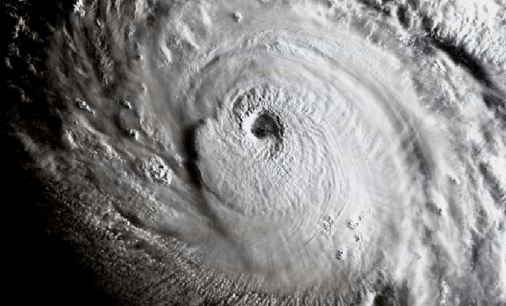 Hurricanes are increasing in intensity
in nearly every region of
the world where the tropical cyclones
occur and a warming planet could be
to blame, according to a new analysis
of nearly 40 years of satellite data.
Scientists at the National Oceanic
Atmospheric Administration (NOAA)
National Center for Environmental
Information and the University of
Wisconsin-Madison Cooperative Institute
for Meteorological Satellite Studies
built upon a previous dataset of hurricane
satellite imagery to analyze images
from between 1979 to 2017. Writing
in Proceedings of the National Academy
of Sciences, researchers found that
storm intensity has increased along with
global mean surface temperatures to
suggest that a changing climate may be
the driving cause.
“Through modeling and our understanding
of atmospheric physics,
the study agrees with what we would
expect to see in a warming climate like
ours,” said James Kossin in a statement.
The probability of a hurricane having
wind speeds of at least 100 knots has
increased by about 15 percent over
the years analyzed with an 8 percent
increase each decade. ...
Hurricanes are increasing in intensity
in nearly every region of
the world where the tropical cyclones
occur and a warming planet could be
to blame, according to a new analysis
of nearly 40 years of satellite data.
Scientists at the National Oceanic
Atmospheric Administration (NOAA)
National Center for Environmental
Information and the University of
Wisconsin-Madison Cooperative Institute
for Meteorological Satellite Studies
built upon a previous dataset of hurricane
satellite imagery to analyze images
from between 1979 to 2017. Writing
in Proceedings of the National Academy
of Sciences, researchers found that
storm intensity has increased along with
global mean surface temperatures to
suggest that a changing climate may be
the driving cause.
“Through modeling and our understanding
of atmospheric physics,
the study agrees with what we would
expect to see in a warming climate like
ours,” said James Kossin in a statement.
The probability of a hurricane having
wind speeds of at least 100 knots has
increased by about 15 percent over
the years analyzed with an 8 percent
increase each decade. ...
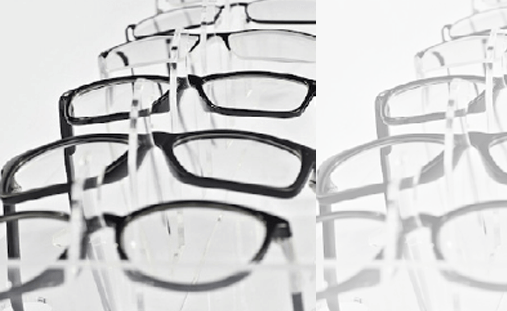 Apple might be turning spectacles
into a status symbol, or make
yours lame, and is believed to be
actively working on smart glasses with
AR functionalities.
Speculations of the eyewear have
been around for awhile, but reliable
tech analyst Jon Prosser now apparently
has more insider info to share.
He disclosed in a new YouTube video
that the gadget, which he dubs to be
the tech giant’s “most mysterious
product ever,” will be named ‘Apple
Glass’ and start at a price of US$499,
excluding prescription costs.
Prosser said the test version sported
plastic frames, but he reckoned the
final product could be built with
metal.
Apple might be turning spectacles
into a status symbol, or make
yours lame, and is believed to be
actively working on smart glasses with
AR functionalities.
Speculations of the eyewear have
been around for awhile, but reliable
tech analyst Jon Prosser now apparently
has more insider info to share.
He disclosed in a new YouTube video
that the gadget, which he dubs to be
the tech giant’s “most mysterious
product ever,” will be named ‘Apple
Glass’ and start at a price of US$499,
excluding prescription costs.
Prosser said the test version sported
plastic frames, but he reckoned the
final product could be built with
metal.
 Compelled by the pressing problems
and shortages resulting from
the COVID-19 pandemic, Singaporean
multidisciplinary creative agency
STUCK Design racked its brains to
innovate unusual design solutions to
fight the coronavirus.
In the past month, the studio’s 24
designers got busy in coming up with
surprising yet affordable and feasible
ideas aimed at solving tough problems
in the current medical climate, and
eventually shared them with hospitals
in Singapore for free.
These include a lightweight and
flexible aerosol guard, door hangers
that double as reminders to stay
inside, and a mask sterilizer created using a food storage container you’re
likely to already have at home. ...
Visit www.stuck.sg
Compelled by the pressing problems
and shortages resulting from
the COVID-19 pandemic, Singaporean
multidisciplinary creative agency
STUCK Design racked its brains to
innovate unusual design solutions to
fight the coronavirus.
In the past month, the studio’s 24
designers got busy in coming up with
surprising yet affordable and feasible
ideas aimed at solving tough problems
in the current medical climate, and
eventually shared them with hospitals
in Singapore for free.
These include a lightweight and
flexible aerosol guard, door hangers
that double as reminders to stay
inside, and a mask sterilizer created using a food storage container you’re
likely to already have at home. ...
Visit www.stuck.sg
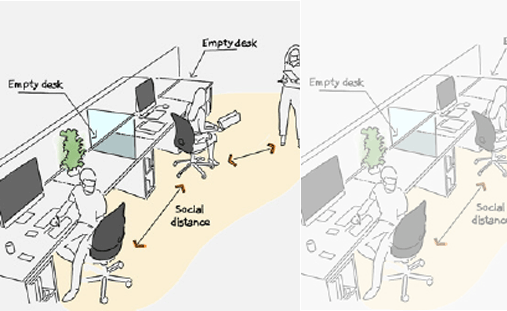 Weston Williamson + Partners
has outlined its plans for a
social-distancing workplace, with
transparent screens around desks,
hands-free doors and a barista, to
allow employees to safely return to
its office following the coronavirus
lockdown.
The London-based architecture studio
has created graphics to illustrate
the adaptions it plans to make to its
office to allow its employees to safely
return to work.
WW+P intends to combine changes
in working practices with physical
alterations to its workspace to allow
employees that want to return to the
office the opportunity to do so. “The
drawings show our response with the
focus on safety,” explained Chris Williamson.
Weston Williamson + Partners
has outlined its plans for a
social-distancing workplace, with
transparent screens around desks,
hands-free doors and a barista, to
allow employees to safely return to
its office following the coronavirus
lockdown.
The London-based architecture studio
has created graphics to illustrate
the adaptions it plans to make to its
office to allow its employees to safely
return to work.
WW+P intends to combine changes
in working practices with physical
alterations to its workspace to allow
employees that want to return to the
office the opportunity to do so. “The
drawings show our response with the
focus on safety,” explained Chris Williamson.
 1 Your glasses or sunglasses. Since
they serve as a barrier to viruses
or bacteria that could make you sick,
Hawkins recommends disinfecting
them after you go out. Run them under
warm water, then use a drop of dish
soap on your fingers to clean the lenses
and the glasses’ surface. Rinse them
clean, and wipe dry with a lens cloth.
2 Your keys. Use a disinfecting wipe
or spray on the actual keys, but use
more care on the fob if there’s a battery
component. You can use a dab of rubbing
alcohol on a rag to wipe the fob
down, then allow it to air dry. Simplify
your key chain to only the essentials.
3 Your credit card or debit card. If
you slide your debit or credit card
through a machine, it’s unlikely the
card will carry and transmit germs. But if you handed your card to someone
else, even if that person was wearing
gloves, always disinfect it with a Lysol
or Clorox wipe or disinfectant spray.
4 Your wallet or purse. To de-germ
a leather wallet or bag, mix up a
solution of hot water and dish soap,
dip a microfiber cloth in it, wipe down
the leather, and dry with a clean towel.
You can throw cloth in the laundry on
the express cycle, then air dry.
5 Your steering wheel. Even if
you sanitize your hands in the
car, there’s a chance you’re spreading
germs, which can survive up to 72
hours, to the steering wheel too. You
can also use a Lysol wipe on the car
door handle, both inside and outside.
1 Your glasses or sunglasses. Since
they serve as a barrier to viruses
or bacteria that could make you sick,
Hawkins recommends disinfecting
them after you go out. Run them under
warm water, then use a drop of dish
soap on your fingers to clean the lenses
and the glasses’ surface. Rinse them
clean, and wipe dry with a lens cloth.
2 Your keys. Use a disinfecting wipe
or spray on the actual keys, but use
more care on the fob if there’s a battery
component. You can use a dab of rubbing
alcohol on a rag to wipe the fob
down, then allow it to air dry. Simplify
your key chain to only the essentials.
3 Your credit card or debit card. If
you slide your debit or credit card
through a machine, it’s unlikely the
card will carry and transmit germs. But if you handed your card to someone
else, even if that person was wearing
gloves, always disinfect it with a Lysol
or Clorox wipe or disinfectant spray.
4 Your wallet or purse. To de-germ
a leather wallet or bag, mix up a
solution of hot water and dish soap,
dip a microfiber cloth in it, wipe down
the leather, and dry with a clean towel.
You can throw cloth in the laundry on
the express cycle, then air dry.
5 Your steering wheel. Even if
you sanitize your hands in the
car, there’s a chance you’re spreading
germs, which can survive up to 72
hours, to the steering wheel too. You
can also use a Lysol wipe on the car
door handle, both inside and outside.
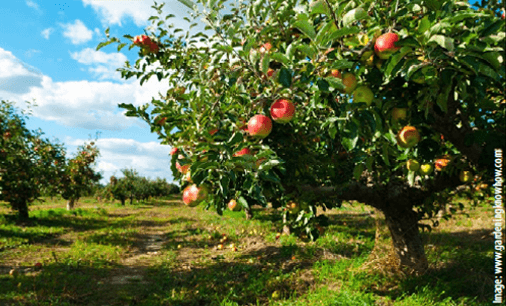 Not only rational and irrational, but
even inanimate creatures have a
voice, and speak loudly to men, and it
is our duty to learn their language, and
hearken to them.
Since the dawn of time, trees have
been our silent companions, which
we’ve transmuted into the myths and
metaphors through which we make
sense of the world —from their deitylike
role in ancient Indian legends
to their long history as the perfect
visual metaphor for visualizing human
knowledge to their symbolic representation
of the cycle of life. Perhaps because
they are so strong and so silent,
bearing steadfast witness to our earthly
lives and while reaching up toward
the heavens, we’ve long projected our
spiritual longings onto trees and turned
to them for answers to our existential
questions.
Four centuries before Hermann Hesse
proclaimed trees “the most penetrating
of preachers,” the English author Ralph
Austen, who wrote with great beauty
about various aspects of gardening,
explored just that in a peculiar pamphlet
titled The Spiritual Use of an Orchard
or Garden of Fruit Trees. Beneath the
highly ... esoteric subject of the book lie
unexpectedly elegant metaphors for
human concerns of eternal resonance to
secular life —from the secret of lasting
relationships to the true test of character.
Read full text:
Not only rational and irrational, but
even inanimate creatures have a
voice, and speak loudly to men, and it
is our duty to learn their language, and
hearken to them.
Since the dawn of time, trees have
been our silent companions, which
we’ve transmuted into the myths and
metaphors through which we make
sense of the world —from their deitylike
role in ancient Indian legends
to their long history as the perfect
visual metaphor for visualizing human
knowledge to their symbolic representation
of the cycle of life. Perhaps because
they are so strong and so silent,
bearing steadfast witness to our earthly
lives and while reaching up toward
the heavens, we’ve long projected our
spiritual longings onto trees and turned
to them for answers to our existential
questions.
Four centuries before Hermann Hesse
proclaimed trees “the most penetrating
of preachers,” the English author Ralph
Austen, who wrote with great beauty
about various aspects of gardening,
explored just that in a peculiar pamphlet
titled The Spiritual Use of an Orchard
or Garden of Fruit Trees. Beneath the
highly ... esoteric subject of the book lie
unexpectedly elegant metaphors for
human concerns of eternal resonance to
secular life —from the secret of lasting
relationships to the true test of character.
Read full text:
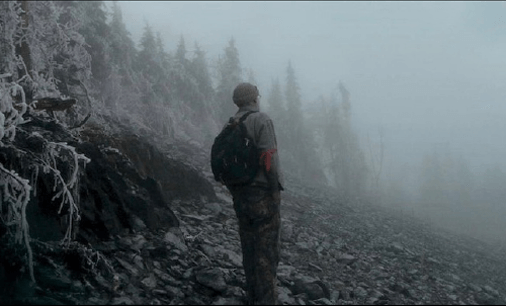 Planet of the Humans is directed
and narrated by longtime [Michael]
Moore collaborator Jeff Gibbs. It
makes particularly contentious claims
about solar, wind and biomass (organic
material which can be burnt for energy).
Some claims are valid. Some are
out of date, and some are just wrong.
Where the film goes wrong
1. Solar panels take more energy to
produce than they generate.
2. Renewables can’t replace fossil fuels.
3. Solar and wind need fossil fuel
back-up.
What does the film get right?
1. We need to deal with population
growth. The film observes that population
growth is the elephant in the room
when it comes to climate change. It
says politicians are reluctant to talk
about limits to population growth “because
that would be bad for business”. ...
2. Biomass energy does more harm
than good. Destroying forests for
biomass energy does more harm than
good –due to loss of habitat, damage
to water systems, and the time taken
for some forests to recover from the
removal of wood. ...
3. Infinite growth on a finite planet
is suicide. Experts have repeatedly
warned that human demand for
resources is damaging the natural
systems that all life depends on.
Read full text:
Planet of the Humans is directed
and narrated by longtime [Michael]
Moore collaborator Jeff Gibbs. It
makes particularly contentious claims
about solar, wind and biomass (organic
material which can be burnt for energy).
Some claims are valid. Some are
out of date, and some are just wrong.
Where the film goes wrong
1. Solar panels take more energy to
produce than they generate.
2. Renewables can’t replace fossil fuels.
3. Solar and wind need fossil fuel
back-up.
What does the film get right?
1. We need to deal with population
growth. The film observes that population
growth is the elephant in the room
when it comes to climate change. It
says politicians are reluctant to talk
about limits to population growth “because
that would be bad for business”. ...
2. Biomass energy does more harm
than good. Destroying forests for
biomass energy does more harm than
good –due to loss of habitat, damage
to water systems, and the time taken
for some forests to recover from the
removal of wood. ...
3. Infinite growth on a finite planet
is suicide. Experts have repeatedly
warned that human demand for
resources is damaging the natural
systems that all life depends on.
Read full text:
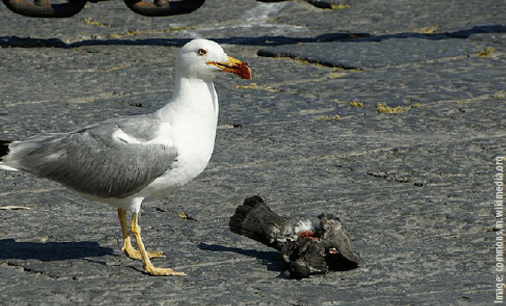 Seagulls in Rome are “returning” to
their natural status as predators,
hunting down rats, pigeons, and other
smaller birds as the lack of humans
on the streets mean no food scraps
are to be found.
Italy has been in lockdown for
nearly two months to slow the spread
of coronavirus, since 9 March. All
restaurants and cafes have closed and
the capital’s streets have been devoid
of the humans the gulls usually pick
scraps of food up from.
Bruno Cignini, a zoologist from the
Rome University Tor Vergata, told
local newspaper Corriere della Sera
the gulls “are going back to being
predators”. “They are catching mostly
pigeons but also swallows and black
birds. They’re also going after the fish
in the Tiber,” he said. “Luckily, they are
also eating rats. Animals are changing
their habits as we change ours.” Eating
pigeons and rats are not a new dietary
choice for the seagulls, but they usually
peck at the prey in the form of
road kill. Now, the species known as
Yellow-Legged Gulls are honing their
killer instincts for survival.
The seagull population in Rome has
grown to the tens of thousands and
they are largely considered aggressive
pests who dive bomb unsuspecting
tourists and snatch food straight out of
the hands of pedestrians.
Read full text:
Seagulls in Rome are “returning” to
their natural status as predators,
hunting down rats, pigeons, and other
smaller birds as the lack of humans
on the streets mean no food scraps
are to be found.
Italy has been in lockdown for
nearly two months to slow the spread
of coronavirus, since 9 March. All
restaurants and cafes have closed and
the capital’s streets have been devoid
of the humans the gulls usually pick
scraps of food up from.
Bruno Cignini, a zoologist from the
Rome University Tor Vergata, told
local newspaper Corriere della Sera
the gulls “are going back to being
predators”. “They are catching mostly
pigeons but also swallows and black
birds. They’re also going after the fish
in the Tiber,” he said. “Luckily, they are
also eating rats. Animals are changing
their habits as we change ours.” Eating
pigeons and rats are not a new dietary
choice for the seagulls, but they usually
peck at the prey in the form of
road kill. Now, the species known as
Yellow-Legged Gulls are honing their
killer instincts for survival.
The seagull population in Rome has
grown to the tens of thousands and
they are largely considered aggressive
pests who dive bomb unsuspecting
tourists and snatch food straight out of
the hands of pedestrians.
Read full text:
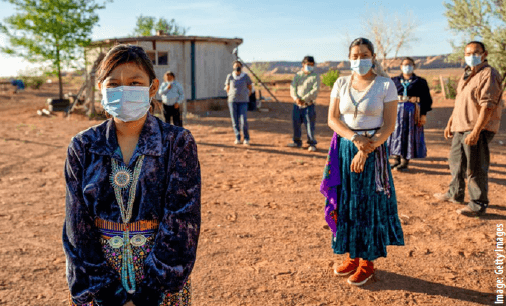 The Navajo Nation, which is spread
out through the American Southwest
mostly in Utah, New Mexico
and Arizona, now has the highest per
capita Covid-19 infection rate in the
country, as CNN reported.
The Navajo Nation’s alarming surge
in cases is another example of an underserved
and historically marginalized
minority population being particularly
vulnerable to the coronavirus pandemic.
As CNN reported, the Navajo Nation
had a reported population of 173,667
on the 2010 census. With 4,002 cases,
the Native American territory now has
2,304.41 cases of Covid-19 per 100,000
people, overtaking New York has the
most infected area per capita. ...
The Navajo already have high risk
factors of comorbidities, including
diabetes, lung disease, high-blood pressure,
hypertension and heart disease.
There’s also a lack of running water,
medical infrastructure, internet access,
information and adequate housing ...
Navajo Nation President Jonathan
Nez told The Washington Post last
week that the Nation had not “one
cent” of the $8 billion that was allocated
to Native American communities
as part of the CARES Act passed in
Washington on March 18. The surge
in cases in the Navajo Nation has
overwhelmed rural hospitals that are
ill-equipped to deal with the novel
coronavirus.
Read full text:
The Navajo Nation, which is spread
out through the American Southwest
mostly in Utah, New Mexico
and Arizona, now has the highest per
capita Covid-19 infection rate in the
country, as CNN reported.
The Navajo Nation’s alarming surge
in cases is another example of an underserved
and historically marginalized
minority population being particularly
vulnerable to the coronavirus pandemic.
As CNN reported, the Navajo Nation
had a reported population of 173,667
on the 2010 census. With 4,002 cases,
the Native American territory now has
2,304.41 cases of Covid-19 per 100,000
people, overtaking New York has the
most infected area per capita. ...
The Navajo already have high risk
factors of comorbidities, including
diabetes, lung disease, high-blood pressure,
hypertension and heart disease.
There’s also a lack of running water,
medical infrastructure, internet access,
information and adequate housing ...
Navajo Nation President Jonathan
Nez told The Washington Post last
week that the Nation had not “one
cent” of the $8 billion that was allocated
to Native American communities
as part of the CARES Act passed in
Washington on March 18. The surge
in cases in the Navajo Nation has
overwhelmed rural hospitals that are
ill-equipped to deal with the novel
coronavirus.
Read full text:
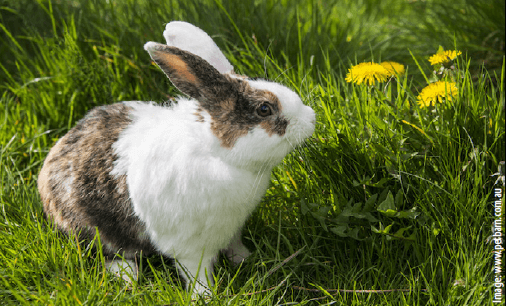 There’s another deadly virus
outbreak in the US, but this one
is killing thousands of wild rabbits. It
started in New Mexico in March and
has since spread to Texas, Arizona,
Colorado, Nevada, California and
Mexico. It poses a fatal threat to pets
as well as wild animals.
The illness is caused by Rabbit Hemorrhagic
Disease Virus type 2 and does
not affect humans or other animals,
only rabbits, hares and perhaps pikas,
a rabbit-like animal, according to the
US Department of Agriculture. It is not
a coronavirus.
This is the first outbreak of the virus
in wild rabbits in North America,
but there have been other, smaller outbreaks among domestic rabbits in
Ohio, Washington and New York, and
in feral rabbits in Canada —pets that
have escaped or been released and
continue to breed. The pet and feral
animals are descendants of European
rabbits, not native to North America.
Ralph Zimmerman, the state veterinarian
in New Mexico, where the
new outbreak started, said its origin
is unknown. But, he added, imported
domestic rabbits are one possibility; the
disease was first identified in France
in 2010 and spread throughout Europe
and later Australia, where it swept the
continent in about a year and a half. ...
Read full text:
There’s another deadly virus
outbreak in the US, but this one
is killing thousands of wild rabbits. It
started in New Mexico in March and
has since spread to Texas, Arizona,
Colorado, Nevada, California and
Mexico. It poses a fatal threat to pets
as well as wild animals.
The illness is caused by Rabbit Hemorrhagic
Disease Virus type 2 and does
not affect humans or other animals,
only rabbits, hares and perhaps pikas,
a rabbit-like animal, according to the
US Department of Agriculture. It is not
a coronavirus.
This is the first outbreak of the virus
in wild rabbits in North America,
but there have been other, smaller outbreaks among domestic rabbits in
Ohio, Washington and New York, and
in feral rabbits in Canada —pets that
have escaped or been released and
continue to breed. The pet and feral
animals are descendants of European
rabbits, not native to North America.
Ralph Zimmerman, the state veterinarian
in New Mexico, where the
new outbreak started, said its origin
is unknown. But, he added, imported
domestic rabbits are one possibility; the
disease was first identified in France
in 2010 and spread throughout Europe
and later Australia, where it swept the
continent in about a year and a half. ...
Read full text:

 A kiln-fired porcelain bird with a natural marble
base and a robin’s breast equipped with LED lights. Twenty minutes before the alarm
sounds, the Chirp Alarm Clock and Light will begin to glow softly. store.moma.org
A kiln-fired porcelain bird with a natural marble
base and a robin’s breast equipped with LED lights. Twenty minutes before the alarm
sounds, the Chirp Alarm Clock and Light will begin to glow softly. store.moma.org
 Brew coffee in the traditional way, with a reusable,
stainless steel filter that doesn’t remove the essential oils and aromas of the beans. When
the coffee is ready, remove the filter and replace it with the cork stopper. store.moma.org
Brew coffee in the traditional way, with a reusable,
stainless steel filter that doesn’t remove the essential oils and aromas of the beans. When
the coffee is ready, remove the filter and replace it with the cork stopper. store.moma.org
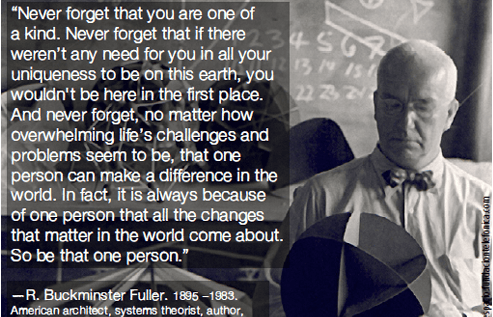 “Never forget that you are one of
a kind. Never forget that if there
weren’t any need for you in all your
uniqueness to be on this earth, you
wouldn't be here in the first place.
And never forget, no matter how
overwhelming life’s challenges and
problems seem to be, that one
person can make a difference in the
world. In fact, it is always because
of one person that all the changes
that matter in the world come about.
So be that one person.”
“Never forget that you are one of
a kind. Never forget that if there
weren’t any need for you in all your
uniqueness to be on this earth, you
wouldn't be here in the first place.
And never forget, no matter how
overwhelming life’s challenges and
problems seem to be, that one
person can make a difference in the
world. In fact, it is always because
of one person that all the changes
that matter in the world come about.
So be that one person.”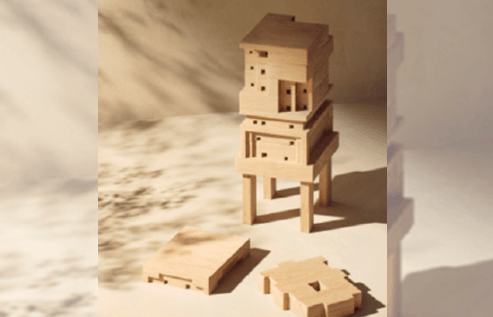
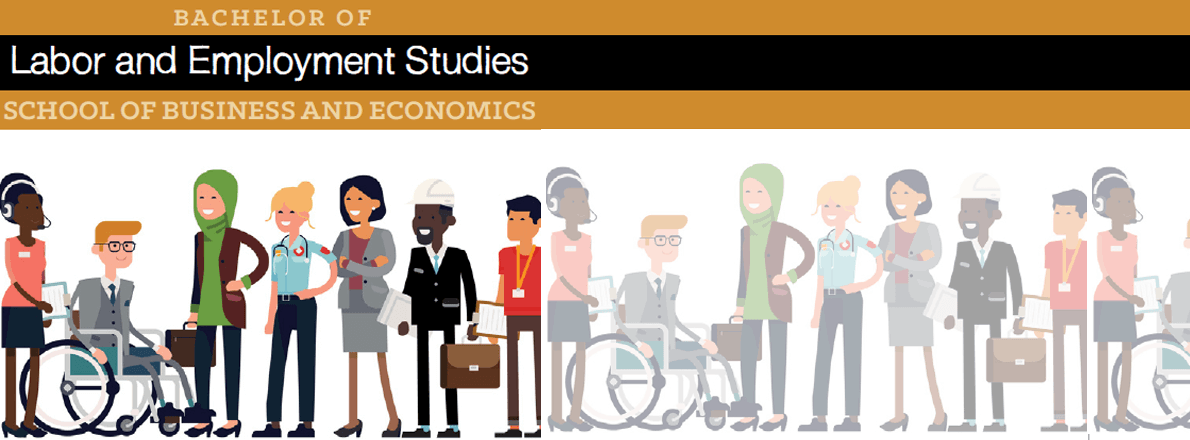 The Bachelor of Labor and Employment
Studies program is offered
online via distance learning. After
evaluating both academic record and
life experience, AIU staff working in
conjunction with Faculty and Academic
Advisors will assist students in
setting up a custom-made program,
designed on an individual basis. This
flexibility to meet student needs is
seldom found in other distance learning
programs. Our online program
does not require all students to take
the same subjects/courses, use the
same books, or learning materials.
Instead, the online Bachelor of Labor
and Employment Studies curriculum
is designed individually by the student
and academic advisor. It specifically
addresses strengths and weaknesses
with respect to market opportunities in
the student’s major and intended field
of work. Understanding that industry
and geographic factors should influence
the content of the curriculum
instead of a standardized one-fits-all
design is the hallmark of AIU’s unique
approach to adult education. This
philosophy addresses the dynamic and
constantly changing environment of
working professionals by helping adult
students in reaching their professional
and personal goals within the scope of
the degree program.
The Bachelor of Labor and Employment
Studies program is offered
online via distance learning. After
evaluating both academic record and
life experience, AIU staff working in
conjunction with Faculty and Academic
Advisors will assist students in
setting up a custom-made program,
designed on an individual basis. This
flexibility to meet student needs is
seldom found in other distance learning
programs. Our online program
does not require all students to take
the same subjects/courses, use the
same books, or learning materials.
Instead, the online Bachelor of Labor
and Employment Studies curriculum
is designed individually by the student
and academic advisor. It specifically
addresses strengths and weaknesses
with respect to market opportunities in
the student’s major and intended field
of work. Understanding that industry
and geographic factors should influence
the content of the curriculum
instead of a standardized one-fits-all
design is the hallmark of AIU’s unique
approach to adult education. This
philosophy addresses the dynamic and
constantly changing environment of
working professionals by helping adult
students in reaching their professional
and personal goals within the scope of
the degree program.
 Atlantic International University is accredited by the Accreditation Service for International
Schools, Colleges and Universities (ASIC). ASIC Accreditation is an internationally
renowned quality standard for colleges and universities. Visit ASIC’s Directory of Accredited
Colleges and Universities. ASIC is a member of CHEA International Quality Group
(CIQG) in the USA, an approved accreditation body by the Ministerial Department of the Home Office
in the UK, and is listed in the International Directory of the Council for Higher Education Accreditation
(CHEA). The University is based in the United States and was established by corporate charter in 1998.
Atlantic International University is accredited by the Accreditation Service for International
Schools, Colleges and Universities (ASIC). ASIC Accreditation is an internationally
renowned quality standard for colleges and universities. Visit ASIC’s Directory of Accredited
Colleges and Universities. ASIC is a member of CHEA International Quality Group
(CIQG) in the USA, an approved accreditation body by the Ministerial Department of the Home Office
in the UK, and is listed in the International Directory of the Council for Higher Education Accreditation
(CHEA). The University is based in the United States and was established by corporate charter in 1998.
 In some cases, accredited colleges
may not accept for transfer courses and degrees
completed at unaccredited colleges, and some
employers may require an accredited degree as
a basis for eligibility for employment. Potential
students should consider how the above may affect
their interests, AIU respects the unique rules and
regulations of each country and does not seek to
influence the respective authorities. In the event
that a prospective student wishes to carry out any
government review or process in regards to his
university degree, we recommend that the requirements
of such are explored in detail with the relevant
authorities by the prospective student as the
university does not intervene in such processes.
AIU students can be found in over 180 countries,
they actively participate and volunteer
in their communities as part of their academic
program and have allocated thousands of service
hours to diverse causes and initiatives. AIU
programs follow the standards commonly used by
colleges and universities in the United States with
regards to the following: academic program
structure, degree issued, transcript, and
other graduation documents.
AIU graduation documents can include
an apostille and authentication from the
US Department of State to facilitate their
use internationally.
In some cases, accredited colleges
may not accept for transfer courses and degrees
completed at unaccredited colleges, and some
employers may require an accredited degree as
a basis for eligibility for employment. Potential
students should consider how the above may affect
their interests, AIU respects the unique rules and
regulations of each country and does not seek to
influence the respective authorities. In the event
that a prospective student wishes to carry out any
government review or process in regards to his
university degree, we recommend that the requirements
of such are explored in detail with the relevant
authorities by the prospective student as the
university does not intervene in such processes.
AIU students can be found in over 180 countries,
they actively participate and volunteer
in their communities as part of their academic
program and have allocated thousands of service
hours to diverse causes and initiatives. AIU
programs follow the standards commonly used by
colleges and universities in the United States with
regards to the following: academic program
structure, degree issued, transcript, and
other graduation documents.
AIU graduation documents can include
an apostille and authentication from the
US Department of State to facilitate their
use internationally.
| Dr. Franklin Valcin President/Academic Dean |
Dr. José Mercado Chief Executive Officer Chairman of the Board of Trustees |
Ricardo González, PhD Provost |
| Dr. Ricardo Gonzalez Chief Operation Officer and MKT Director |
Linda Collazo Logistics Coordinator |
Dr. Silvia Restorff Academic Advisor |
| Dr. Miriam Garibaldi Viceprovost for Research |
Irina Ivashuk Alumni Association Coordinator |
Dr. Prakash Menon Academic Advisor |
| Clara Margalef Director of Special Projects of AIU |
Carlos Aponte Telecommunications Coordinator |
Dr. Nilani Ljunggren De Silva Academic Advisor |
| Juan Pablo Moreno Director of Operations |
David Jung Corporate/Legal Counsel |
Dr. Scott Wilson Academic Advisor |
| Paula Viera Director of Intelligence Systems |
Bruce Kim Advisor/Consultant |
Dr. Mohammad Shaidul Islam Academic Advisor |
| Felipe Gomez Design Director / IT Supervisor |
Thomas Kim Corporate/ Accounting Counsel |
Dr. Edgar Colon Academic Advisor |
| Daritza Ysla IT Coordinator |
Camila Correa Quality Assurance Coordinator |
Deborah Rodriguez Academic Tutor Coordinator |
| Nadeem Awan Chief Programming Officer |
Maricela Esparza Administrative Coordinator |
Cyndy Dominguez Academic Tutor Coordinator |
| Dr. Jack Rosenzweig Dean of Academic Affairs |
Chris Benjamin IT and Hosting Support |
Kinmberly Diaz Admissions Support Tutor |
| Dr. Edward Lambert Academic Director |
Mayra Bolivar Accounting Coordinator |
Amalia Aldrett Admissions Coordinator |
| Dr. Ariadna Romero Advisor Coordinator |
Roberto Aldrett Communications Coordinator |
Sandra Garcia Admissions Coordinator |
| Nadia Gabaldon Academic Coordinator |
Giovanni Castillo IT Support |
Jose Neuhaus Admissions Support |
| Jhanzaib Awan Senior Programmer |
Jaime Rotlewicz Dean of Admissions |
Junko Shimizu Admissions Coordinator |
| Leonardo Salas Human Resource Manager |
Dr. Mario Rios Academic Advisor |
Veronica Amuz Admissions Coordinator |
| Benjamin Joseph IT and Technology Support |
Michael Phillips Registrar’s Office |
Alba Ochoa Admissions Coordinator |
| Rosie Perez Finance Coordinator |
Rene Cordon Admissions Support |
Jenis Garcia Admissions Counselor |
| Chris Soto Admissions Counselor |
||
 The School of Business and Economics
allows aspiring and practicing
professionals, managers, and entrepreneurs
in the private and public sectors
to complete a self paced distance
learning degree program of the highest
academic standard.
The ultimate goal is to empower
learners and help them take advantage
of the enormous array of resources
from the world environment in order
to eliminate the current continuum of
poverty and limitations.
Degree programs are designed for
those students whose professional experience has been in business,
marketing, administration, economics,
finance and management.
The School of Business and Economics
allows aspiring and practicing
professionals, managers, and entrepreneurs
in the private and public sectors
to complete a self paced distance
learning degree program of the highest
academic standard.
The ultimate goal is to empower
learners and help them take advantage
of the enormous array of resources
from the world environment in order
to eliminate the current continuum of
poverty and limitations.
Degree programs are designed for
those students whose professional experience has been in business,
marketing, administration, economics,
finance and management.
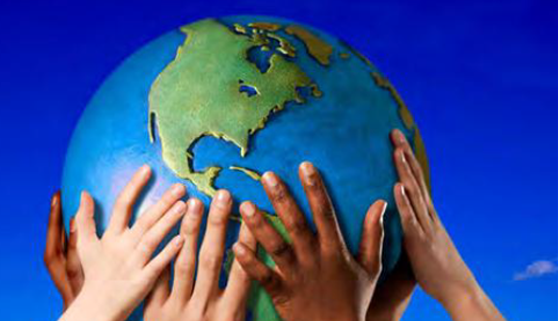 The School of Social and Human Studies
is focused on to the development of
studies which instill a core commitment
to building a society based on social and
economic justice and enhancing opportunities
for human well being.
The founding principles lie on the
basic right of education as outlined
in the Declaration of Human Rights.
We instill in our students a sense of
confidence and self reliance in their
ability to access the vast opportunities
available through information channels,
the world wide web, private, public,
nonprofit, and nongovernmental organizations in an ever expanding
global community.
Degree programs are aimed towards
those whose professional life has been
related to social and human behavior,
with the arts, or with cultural studies.
The School of Social and Human Studies
is focused on to the development of
studies which instill a core commitment
to building a society based on social and
economic justice and enhancing opportunities
for human well being.
The founding principles lie on the
basic right of education as outlined
in the Declaration of Human Rights.
We instill in our students a sense of
confidence and self reliance in their
ability to access the vast opportunities
available through information channels,
the world wide web, private, public,
nonprofit, and nongovernmental organizations in an ever expanding
global community.
Degree programs are aimed towards
those whose professional life has been
related to social and human behavior,
with the arts, or with cultural studies.
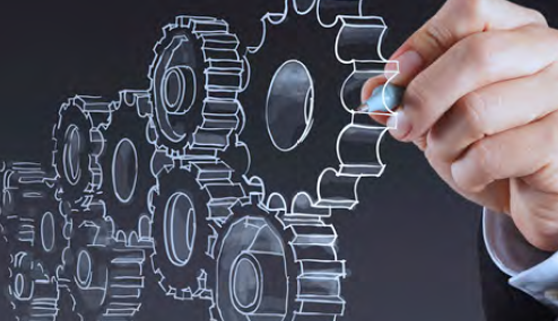 The School of Science and Engineering
seeks to provide dynamic, integrated,
and challenging degree programs
designed for those whose experience
is in industrial research, scientific production,
engineering and the general
sciences. Our system for research and
education will keep us apace with the
twenty-first century reach scientific
advance in an environmentally and
ecologically responsible manner to allow
for the sustainability of the human
population. We will foster among our
students a demand for ethical behavior,
an appreciation for diversity, an understanding
of scientific investigation, knowledge of design innovation, a
critical appreciation for the importance
of technology and technological change
for the advancement of humanity.
The School of Science and Engineering
seeks to provide dynamic, integrated,
and challenging degree programs
designed for those whose experience
is in industrial research, scientific production,
engineering and the general
sciences. Our system for research and
education will keep us apace with the
twenty-first century reach scientific
advance in an environmentally and
ecologically responsible manner to allow
for the sustainability of the human
population. We will foster among our
students a demand for ethical behavior,
an appreciation for diversity, an understanding
of scientific investigation, knowledge of design innovation, a
critical appreciation for the importance
of technology and technological change
for the advancement of humanity.
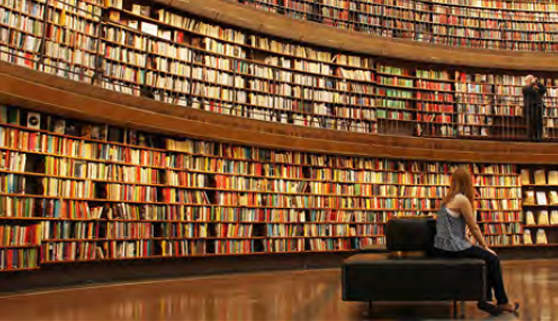 With access to a global catalog created and maintained collectively by more than
9,000 participating institutions, AIU students have secured excellent research
tools for their study programs.
With access to a global catalog created and maintained collectively by more than
9,000 participating institutions, AIU students have secured excellent research
tools for their study programs.